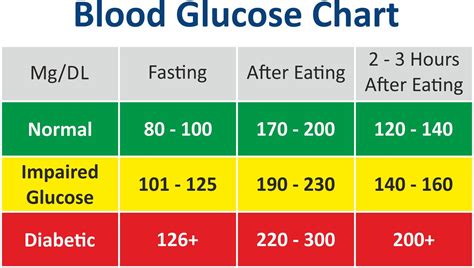Intro
Discover normal blood sugar levels today, including healthy glucose ranges, blood sugar charts, and diabetic targets, to manage hyperglycemia and hypoglycemia effectively.
Maintaining normal blood sugar levels is crucial for overall health and well-being. Blood sugar, also known as glucose, is the primary source of energy for the body's cells. When blood sugar levels are within a normal range, the body functions properly, and the risk of developing chronic diseases is reduced. However, when blood sugar levels are consistently high or low, it can lead to various health problems, including diabetes, heart disease, and nerve damage. In this article, we will delve into the importance of normal blood sugar levels, the factors that affect them, and provide tips on how to maintain a healthy blood sugar range.
The human body is designed to regulate blood sugar levels within a narrow range, typically between 70 and 110 milligrams per deciliter (mg/dL). When we eat, carbohydrates are broken down into glucose, which is then absorbed into the bloodstream. The pancreas releases insulin, a hormone that helps cells absorb glucose, thereby reducing blood sugar levels. Conversely, when blood sugar levels drop, the pancreas releases glucagon, a hormone that stimulates the liver to release stored glucose into the bloodstream. This delicate balance is essential for maintaining normal blood sugar levels and preventing health complications.
Understanding normal blood sugar levels is vital for individuals with diabetes, as well as those who are at risk of developing the condition. According to the American Diabetes Association, approximately 34 million Americans have diabetes, and an additional 88 million have prediabetes, a condition characterized by elevated blood sugar levels that are not yet high enough to be classified as diabetes. By learning how to manage blood sugar levels, individuals can reduce their risk of developing diabetes and related health problems.
What are Normal Blood Sugar Levels?

Normal blood sugar levels vary throughout the day, depending on factors such as diet, physical activity, and sleep. The American Diabetes Association recommends the following blood sugar targets:
- Fasting blood sugar: 70-110 mg/dL
- Before meals: 70-130 mg/dL
- After meals: Less than 180 mg/dL
- At bedtime: 100-140 mg/dL
It's essential to note that these targets may vary depending on individual factors, such as age, health status, and medication use. Consult with a healthcare provider to determine the best blood sugar targets for your specific needs.
Factors that Affect Blood Sugar Levels

Several factors can influence blood sugar levels, including:
- Diet: Consuming high-carbohydrate or high-sugar foods can cause blood sugar levels to rise.
- Physical activity: Regular exercise can help lower blood sugar levels and improve insulin sensitivity.
- Sleep: Poor sleep quality or duration can disrupt blood sugar regulation.
- Stress: Chronic stress can raise blood sugar levels and worsen insulin resistance.
- Medications: Certain medications, such as steroids and certain psychiatric medications, can affect blood sugar levels.
- Hormonal changes: Hormonal fluctuations during pregnancy, menopause, or thyroid disorders can impact blood sugar levels.
How to Maintain Normal Blood Sugar Levels
Maintaining normal blood sugar levels requires a combination of healthy lifestyle habits and, if necessary, medication. Here are some tips to help you regulate your blood sugar levels: * Eat a balanced diet: Focus on whole, unprocessed foods, such as vegetables, fruits, whole grains, lean proteins, and healthy fats. * Stay hydrated: Drink plenty of water throughout the day to help regulate blood sugar levels. * Exercise regularly: Aim for at least 150 minutes of moderate-intensity aerobic exercise, or 75 minutes of vigorous-intensity aerobic exercise, or a combination of both, per week. * Manage stress: Engage in stress-reducing activities, such as yoga, meditation, or deep breathing exercises. * Get enough sleep: Aim for 7-8 hours of sleep per night to help regulate blood sugar levels.Monitoring Blood Sugar Levels

Regular blood sugar monitoring is essential for individuals with diabetes or those at risk of developing the condition. There are several ways to monitor blood sugar levels, including:
- Fasting blood sugar tests: Measure blood sugar levels after an overnight fast.
- Oral glucose tolerance tests: Measure blood sugar levels after consuming a sugary drink.
- Continuous glucose monitoring: Use a device to track blood sugar levels throughout the day.
- Self-monitoring of blood glucose: Use a glucometer to measure blood sugar levels at home.
Benefits of Maintaining Normal Blood Sugar Levels
Maintaining normal blood sugar levels offers numerous health benefits, including: * Reduced risk of diabetes: Regulating blood sugar levels can help prevent or delay the onset of diabetes. * Improved heart health: High blood sugar levels can damage blood vessels and increase the risk of heart disease. * Enhanced cognitive function: High blood sugar levels have been linked to cognitive decline and dementia. * Better weight management: Regulating blood sugar levels can help with weight loss and maintenance. * Improved energy levels: Maintaining normal blood sugar levels can help reduce fatigue and increase energy levels.Common Blood Sugar-Related Health Problems

High or low blood sugar levels can lead to various health problems, including:
- Diabetes: A chronic condition characterized by high blood sugar levels.
- Hypoglycemia: A condition characterized by low blood sugar levels.
- Hyperglycemia: A condition characterized by high blood sugar levels.
- Insulin resistance: A condition in which the body becomes less responsive to insulin.
- Metabolic syndrome: A cluster of conditions, including high blood pressure, high blood sugar, and high cholesterol, that increase the risk of heart disease and diabetes.
Managing Blood Sugar-Related Health Problems
Managing blood sugar-related health problems requires a comprehensive approach that includes lifestyle modifications and, if necessary, medication. Here are some tips to help manage blood sugar-related health problems: * Work with a healthcare provider: Develop a personalized treatment plan with a healthcare provider. * Monitor blood sugar levels: Regularly track blood sugar levels to identify patterns and make adjustments to treatment. * Take medication as prescribed: If medication is prescribed, take it as directed to help regulate blood sugar levels. * Make lifestyle changes: Focus on healthy lifestyle habits, such as a balanced diet, regular exercise, and stress management.Conclusion and Next Steps

Maintaining normal blood sugar levels is crucial for overall health and well-being. By understanding the factors that affect blood sugar levels and taking steps to regulate them, individuals can reduce their risk of developing diabetes and related health problems. If you're concerned about your blood sugar levels or have questions about managing blood sugar-related health problems, consult with a healthcare provider for personalized guidance.
We invite you to share your thoughts and experiences with maintaining normal blood sugar levels in the comments section below. Have you found any specific strategies or techniques to be helpful in regulating your blood sugar levels? Share your story and help others who may be struggling with similar challenges. Additionally, if you found this article informative and helpful, please share it with others who may benefit from the information.
What are the symptoms of high blood sugar levels?
+Common symptoms of high blood sugar levels include increased thirst and urination, blurred vision, fatigue, and slow healing of cuts and wounds.
How often should I monitor my blood sugar levels?
+The frequency of blood sugar monitoring depends on individual factors, such as the type of diabetes, medication use, and lifestyle habits. Consult with a healthcare provider to determine the best monitoring schedule for your specific needs.
What are the benefits of maintaining normal blood sugar levels?
+Maintaining normal blood sugar levels offers numerous health benefits, including reduced risk of diabetes, improved heart health, enhanced cognitive function, better weight management, and improved energy levels.
